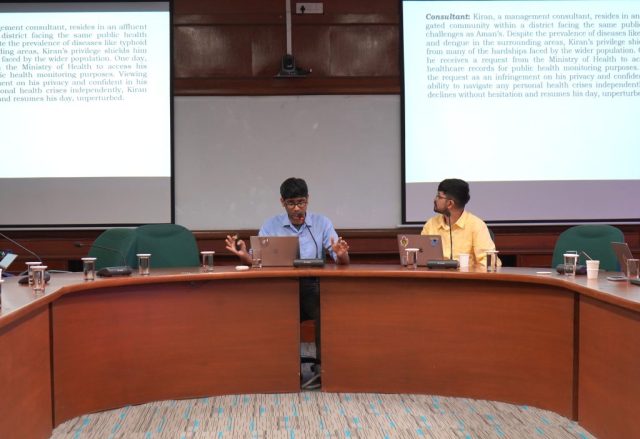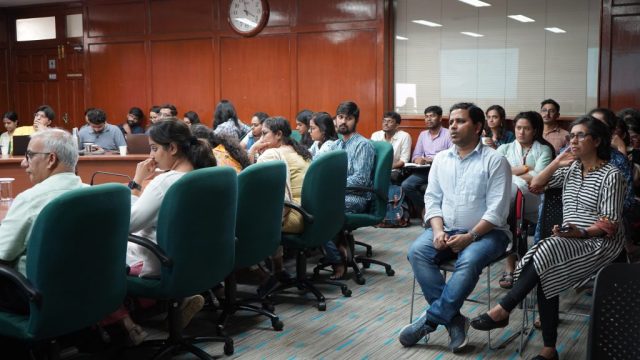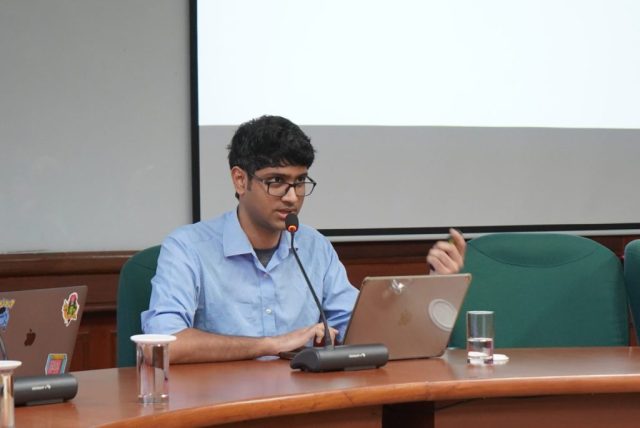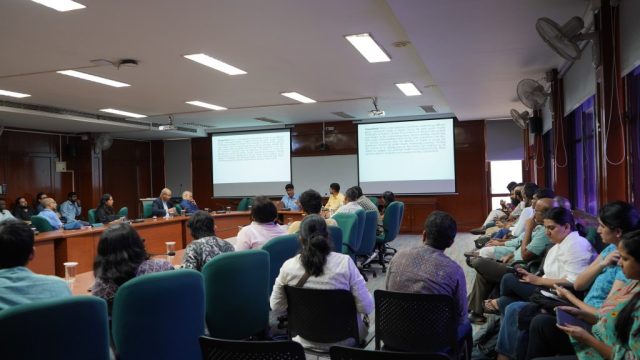NLS Faculty Seminar | ‘Fair Play in the Digital Infrastructural Era’
Ground Floor Conference Hall, Training Centre
Wednesday, July 30, 2025, 3:45 pm
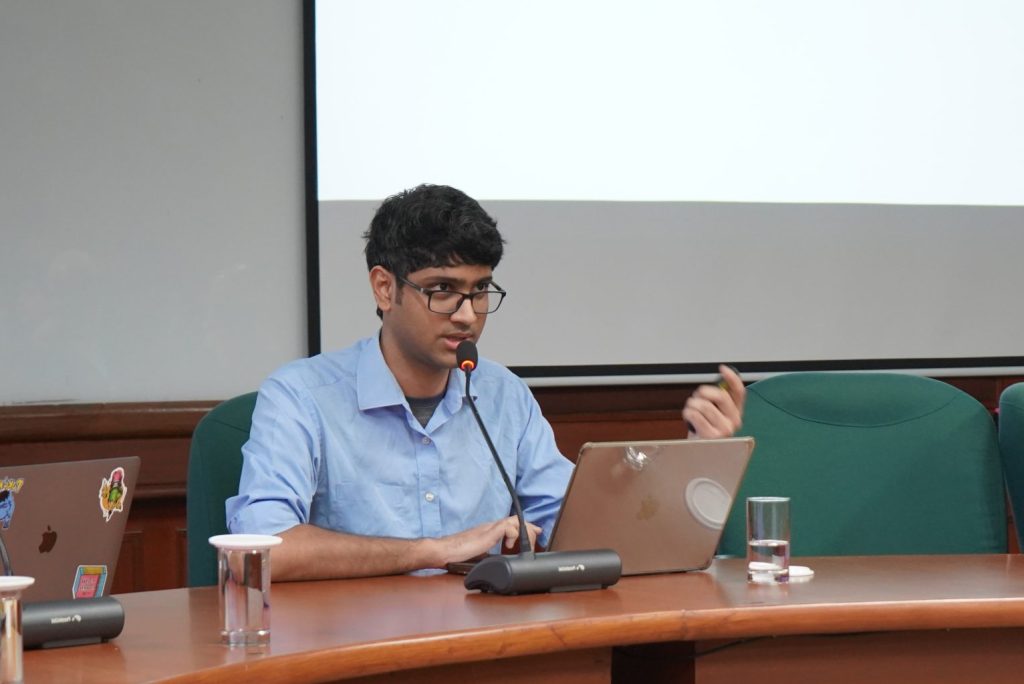 In this week’s faculty seminar, Bharath Gururagavendran, Assistant Professor of Law, presented his paper titled ‘Fair Play in the Digital Infrastructural Era.’ The seminar was held on July 30, 2025, in the Ground Floor Conference Hall at NLSIU’s Training Centre.
In this week’s faculty seminar, Bharath Gururagavendran, Assistant Professor of Law, presented his paper titled ‘Fair Play in the Digital Infrastructural Era.’ The seminar was held on July 30, 2025, in the Ground Floor Conference Hall at NLSIU’s Training Centre.
Abstract
This paper interrogates the normative architecture of digital public infrastructures (DPIs) through a fair play (FP) analysis, arguing that contemporary data-driven welfare schemes, though formally consent-based, optimal, and aligned with prevailing accounts of the FP principle, nonetheless misallocate burdens and benefits and generate distinct semiotic harms that urge retheorisation of FP. Developing Uṭal Nalam Tiṭṭam (UNT), a fictional healthcare infrastructure modelled on India’s Ayushman Bharat Digital Mission, the paper examines how such schemes disproportionately compel data contributions from structurally disadvantaged users while legitimising opt-outs by more privileged participants. Through stylised case studies embedded within UNT (Farmer, Consultant, Compassionate Lawyer), it asks whether, and under what conditions, refusals to contribute constitute wrongful free riding, and whether schemes that are formally voluntary but functionally coercive can satisfy the requirements of fair play. Methodologically, the paper adopts a diagnostic approach grounded in political theory and institutional analysis.
The argument proceeds in two parts. First, it applies the FP principle to contemporary DPI regimes (as instantiated in UNT), drawing on formal accounts developed by Rawls, Cullity, Tosi, Trifan, and Brown. Second, it reverses the lens, using UNT to show how the institutional logic of digital infrastructures unsettles core assumptions in these accounts. It demonstrates how algorithmic and infrastructural design embeds normative claims about public value and fairness in ways that constrain exit, deepen dependence, and distort the terms of consent, reciprocity, and political obligation. Contra Tosi, the paper challenges the view that FP applies only to interactions governed by the express rules of cooperative schemes, revealing how background conditions shape participation in ways that undermine voluntariness and skew burden distribution. Contra Brown, it questions whether reciprocity-based obligations can remain discretionary in schemes that unequally structure agents’ capacity to choose. The paper argues that UNT fails both the justice and acceptance conditions of FP: it compels the least powerful to surrender privacy for access, while affording the affluent and digitally literate, a normatively unexamined right to abstain. Crucially, the paper contends that this asymmetry is not merely distributive or instrumental, but expressive. It erodes the normative foundations of cooperation itself. It concludes by identifying conceptual blind spots that demand a re-theorisation of fair play attuned to the design logics of digital governance.


